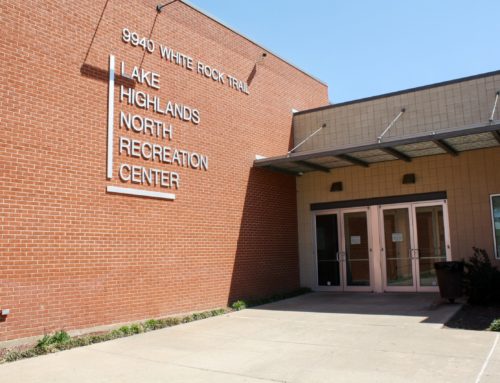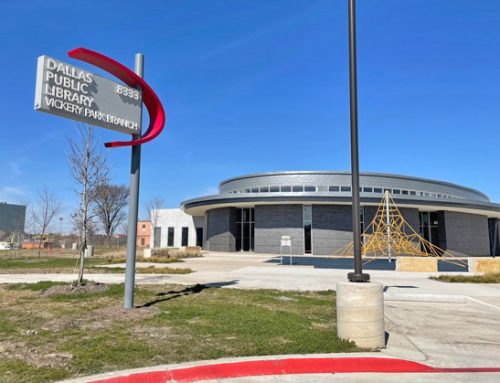
Антон Дмитриев for Unsplash
Winter has come. School district administrators have already decided to close down the rest of the week. City buildings and local shops have shuttered until further notice. Warming stations and shelters are open to those in need. Ted Cruz is packing. And, as we have come to expect, Pete Delkus is on figurative fire.
"When will the frozen precip start at my house??" I have the answer for ALL of you! Here's an hour-by-hour video showing the arrival of the sleet and freezing rain (the areas in pink). Bottom line: the later we get into the night, the more hazardous the travel. #wfaaweather pic.twitter.com/fMATlMcq95
— Pete Delkus (@wfaaweather) February 2, 2022
Pete and lesser meteorologists do not think the approaching storm will match the severity of the weeklong February 2021 freeze, which resulted in a statewide power crisis that left four and a half million Texas households without power and more than 200, directly or indirectly, dead. (Damages statewide to date are estimated at at least $195 billion.)
Gov. Greg Abbott is touting the state grid’s reliability, but also warning that power outages may still occur.
Abbott signed into law last summer two bills he said would “fix all of the flaws” the state’s main power grid and update the governance of the agency that operates it.
“Bottom line is that everything that needed to be done was done to fix the power grid in Texas,” Abbott said upon signing.
But many experts say that’s not true, that we haven’t done enough to ensure sufficient gas supply.
Texas officials might be betting (with Texans’ lives) that we won’t experience a freeze as severe as that of February 2021, and the odds are in their favor. But on the off chance that we do, we’re not fully prepared.
Some surmise as much because, while lawmakers (Senate Bill 3) required most power generation companies to be prepared by this winter, they allowed natural gas companies — which fuel a majority of electricity generation in Texas — to opt out.
Long before last year’s crisis, analysts were insisting that Texas needed to “weatherize” not only its power plants but also its oil and gas infrastructure.
When wellheads and other components in the natural gas supply chain freeze, gas can’t get to power plants, explained Dan Cohan, a professor of civil engineering at Rice University when he spoke with NPR in June.
Around Abbott’s SB3 signing, Curt Morgan, chief executive officer for Vistra Corp the state’s largest electric provider told KXAN the weatherization requirement would “go a long way,” but it should be a requirement for all parts of the energy system.
Months later Morgan talked to Texas Tribune again about the issue.Texas still hasn’t fixed the critical problem that paralyzed power plants, he said. If gas systems aren’t weatherized there is nothing his company or any electric provider can do that would be enough to prevent another disaster if there is another severe freeze.
Texas Tribune reporter Mitchell Ferman called it “a glaring shortcoming in Texas’ efforts to prevent a repeat of February.” Ferman’s piece explains what legislators including those who regulate the gas industry, have done and are doing to remedy the situation.
The real bottom line is that Texas has done “next to nothing” to weatherize its natural gas supply, Doug Lewin, an Austin-based energy consultant told the Tribune.
“We don’t have a regulatory system in place that holds the industry accountable. That is the problem,” Lewin said. “It’s not a technology or engineering problem. It’s a regulatory problem.”
“We had a failure of the gas system that also the electric system contributed to as well, so it’s very important that those two systems work seamlessly together,” he told the news station.
Now, three months after that commentary, providers warn that gas supply will be short.
Two hours before Abbott’s press conference yesterday, the Electric Reliability Council of Texas (ERCOT—the Texas power grid management system) held a conference call warning “entities in the Texas power system” that “gas supply would be short during the upcoming freeze,” according to The Texas Tribune, which withheld names of sources on the call.
There are indicators that gas supply companies — voluntarily — could be in better shape than they were this time last year. Oncor, which powers 3.8 million homes and businesses around our metropolitan area, reportedly has received 1,061 forms from gas companies declaring their infrastructure as critical. Those forms suggest that those gas companies are likely to be weatherized and prepared to operate during a grid emergency.
(If curious about the history and nitty gritty of Texas power and electricity — what does it look like? Why does Texas have its own? How much energy do we use, and is there a better way? — The Advocate‘s Keri Mitchell along with Texas Tribune‘s Kate Galbraith in 2013 penned series about it.)
Visit the City of Dallas Office of Emergency Management for more winter-weather tips and resources. More resources from the governor’s office are listed here.
We are al encouraged to monitor road conditions at drivetexas.org. Texans can also access power line safety reports and contact their transmission company at puc.texas.gov.





